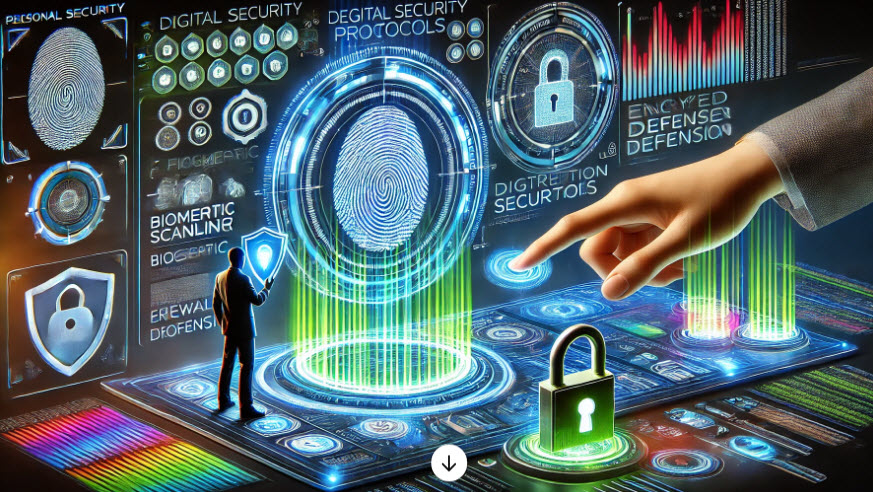- Home
- Home Invasion
- Secret Terrorist Networks
Protect Yourself from America's Secret Terrorist Networks:
Discover essential security measures to safeguard against modern terrorist threats.
Personal Defense Guide: Countering Domestic Terror Networks
In today's interconnected world, learning how to protect yourself from America's secret terrorist networks has become more crucial than ever. From cyber threats to physical security concerns, understanding the landscape of modern terrorism and implementing effective countermeasures can mean the difference between safety and vulnerability.
Understanding the Modern Terrorist Landscape
Digital Infrastructure Vulnerabilities
The battlefield has shifted dramatically from physical spaces to digital realms. Today's terrorist networks aren't just hiding in remote caves - they're infiltrating our digital infrastructure through sophisticated cyber attacks. These groups target everything from power grids to financial systems, making everyday technology a potential weapon.
The Evolution of Domestic Threats
Modern terrorist networks have evolved beyond traditional foreign threats. They've become increasingly decentralized, making them harder to detect and neutralize. These networks often operate through seemingly legitimate businesses or organizations, masking their true intentions behind everyday operations.
Essential Security Measures for Personal Protection
Digital Security Protocols
To protect yourself from America's secret terrorist networks, start with these fundamental digital security measures:
- Use strong, unique passwords for all accounts
- Implement two-factor authentication
- Regularly update all devices and software
- Use encrypted communication channels
- Be cautious with public Wi-Fi networks
Physical Security Considerations
While digital threats are prominent, physical security remains crucial:
- Install quality home security systems
- Be aware of your surroundings in public spaces
- Keep emergency supplies readily available
- Maintain multiple evacuation routes from your home and workplace
- Create and practice family emergency plans
Identifying and Avoiding Terrorist Network Tactics
Common Recruitment Methods
Modern terrorist networks often use sophisticated recruitment tactics:
- Social media manipulation
- Online radicalization
- Community infiltration
- Economic incentives
- Exploitation of personal vulnerabilities
Understanding these methods helps you recognize and avoid potential recruitment attempts.
Financial Protection Strategies
Terrorist networks often target financial systems to fund their operations:
- Monitor your accounts regularly
- Use secure payment methods
- Be wary of unusual financial requests
- Report suspicious transactions
- Keep detailed records of all financial activities
Building Community Resilience
Creating Support Networks
Strong community bonds help protect against terrorist infiltration:
- Know your neighbors
- Participate in community watch programs
- Share information with local law enforcement
- Support legitimate community organizations
- Build emergency response networks
Education and Awareness
Knowledge is power in protecting against terrorist threats:
- Stay informed about current events
- Attend community safety workshops
- Learn to recognize warning signs
- Share verified information with family and friends
- Support educational initiatives
Technology-Based Protection Methods
Secure Communication Systems
Protecting your communications is crucial:
- Use encrypted messaging apps
- Verify sender identities
- Avoid clicking suspicious links
- Regular security audits of communication devices
- Keep software updated
Smart Device Security
Modern homes are filled with potentially vulnerable smart devices:
- Change default passwords
- Regularly update firmware
- Disable unnecessary features
- Segment your home network
- Monitor device activity
Government Resources and Support
Federal Protection Programs
Various government agencies offer resources for protection:
- FBI tip lines
- Homeland Security alerts
- Local law enforcement cooperation
- Emergency response training
- Information sharing networks
Reporting Suspicious Activity
Know how and when to report potential threats:
- Document suspicious behavior
- Contact appropriate authorities
- Follow established reporting protocols
- Maintain confidentiality
- Stay vigilant without paranoia
Emergency Preparedness
Creating Emergency Plans
Develop comprehensive emergency plans:
- Establish meeting points
- Stock essential supplies
- Create communication protocols
- Maintain important documents
- Regular plan reviews and updates
Response Protocols
Know how to respond in various emergency situations:
- Stay calm and assessed
- Follow established procedures
- Contact emergency services
- Help others when safe
- Document incidents
Ongoing Protection Strategies
Regular Security Assessments
Maintain active security measures:
- Weekly security checks
- Monthly system updates
- Quarterly emergency drills
- Annual plan reviews
- Continuous education
Adapting to New Threats
Stay flexible and responsive to emerging threats:
- Monitor threat assessments
- Update security measures
- Learn new protection methods
- Adapt emergency plans
- Share best practices
Building Long-term Resilience
Mental Preparation
Psychological resilience is crucial:
- Maintain situational awareness
- Develop critical thinking skills
- Practice stress management
- Build emotional strength
- Foster community connections
Sustainable Security Practices
Create lasting security habits:
- Regular security routines
- Ongoing education
- Community involvement
- Resource management
- Continuous improvement
Conclusion:
Learning to protect yourself from America's secret terrorist networks requires constant vigilance and adaptation. By implementing these strategies and staying informed about evolving threats, you can better safeguard yourself, your family, and your community against modern terrorist activities. Remember, security is not a one-time effort but a continuous process of awareness, preparation, and response.
Be sure to check out the "vital details" of our new
Survival Intelligence Blackfile.



























